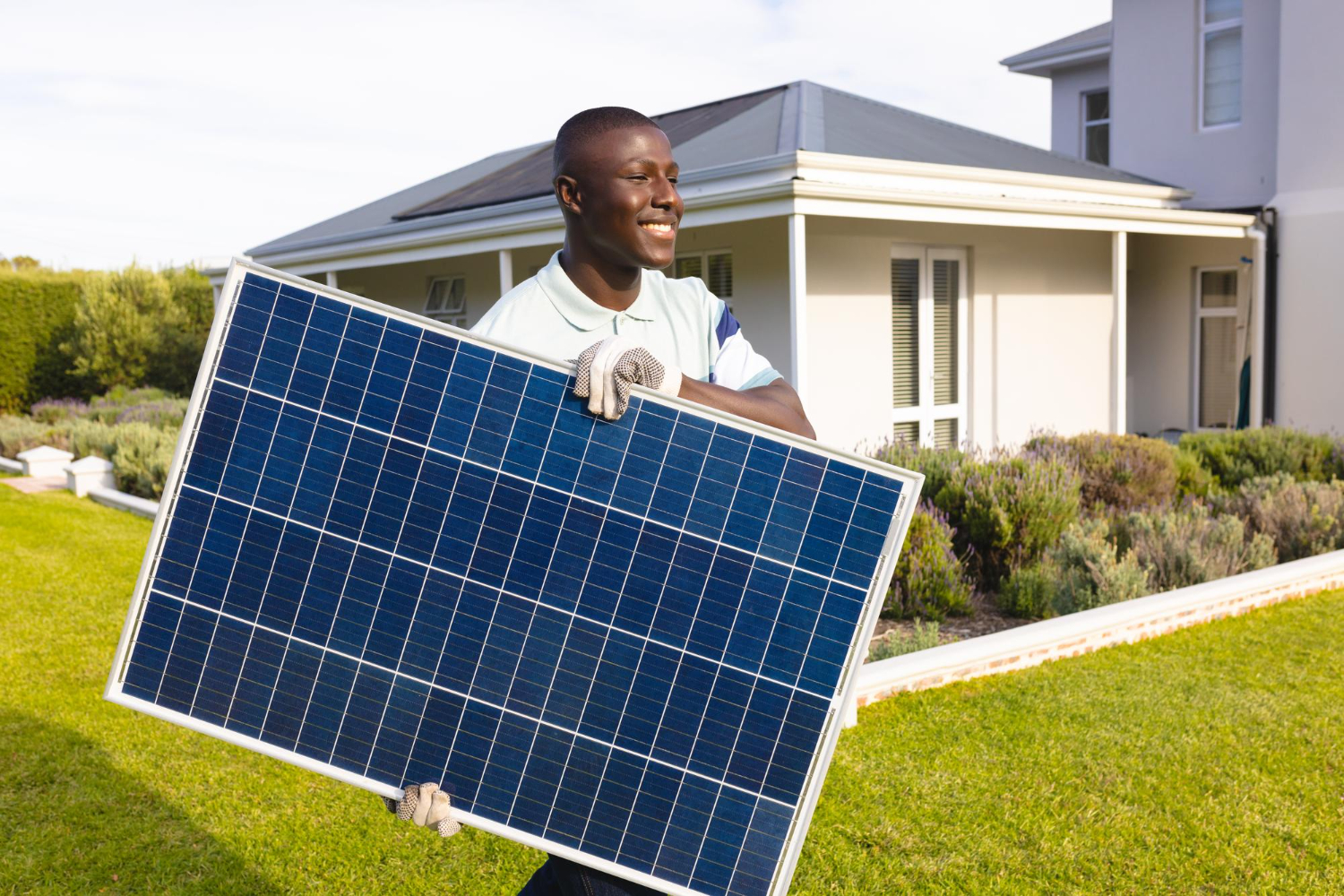The runtime of a solar panel in your home can be maximized by following a few simple tips and tricks. Solar panels have become an increasingly popular option for powering our homes with renewable energy and reducing our carbon footprint.
First of all, it is essential to choose the ideal location to install your solar panels. Exposure to sunlight is a key factor in ensuring maximum yield. Make sure your panels face south, in a position where they receive as much sunlight as possible throughout the day. Avoid shadowy areas and obstacles that could block sunlight, such as nearby trees or buildings.
Then, regular maintenance of your solar panels is essential to guarantee their efficiency. Be sure to clean your panels at least twice a year to remove dust, leaves, or other dirt that could clog them. Use water and a soft cloth to avoid damaging the panels. In addition, monitor the condition of your panels and regularly check their operation to detect possible problems or anomalies.
Another tip to maximize the autonomy of your solar panels is to invest in energy storage batteries. Batteries allow you to store the electricity produced by your solar panels during the day for later use, especially overnight or on cloudy days. This allows you to use solar energy even when the sun is not shining, which helps increase the autonomy of your solar system.
At the same time, consider optimizing your electricity consumption. By adopting simple, energy-saving actions, you will reduce your overall consumption and extend the autonomy of your solar panels. For example, use low-energy LED bulbs, turn off electronic devices on standby, properly insulate your home to reduce energy loss, and opt for energy-efficient appliances.
Additionally, you can also increase the efficiency of your solar system by using smart inverters. Inverters convert solar energy into electricity that can be used in your home. Smart inverters are able to track the maximum power at any time and adjust the voltage accordingly, helping to maximize the efficiency of your solar panels.
Thermal management to improve the performance of solar panels
Heat can be a major concern for solar panels. When solar panels get too hot, their efficiency decreases. This means they produce less electricity even if the sun is shining brightly. It is therefore essential to understand the impact of temperature on solar panels and take steps to minimize these effects.
The temperature coefficient of most solar panels is negative, meaning that their efficiency decreases as the temperature increases. For example, for every degree Celsius above 25°C, the power output of a typical panel can decrease by approximately 0.5%. In extremely hot conditions, this can result in a significant loss of yield.
To counter this, it is recommended to maintain air circulation appropriate around the panels. If solar panels are mounted directly on the roof, there may not be enough space for air to circulate freely, leading to heat buildup. Using raised supports for solar panels can help create space for air circulation, helping to naturally cool the panels.
It is also possible to invest in thermally optimized solar panels. These panels are designed with materials and technologies that make them less sensitive to temperature variations. Although they may cost a little more up front, the improved performance may justify the investment in the long run.
Another aspect to consider is the coloring and material of the roof. Dark roofs absorb more heat than light roofs. If you are considering installing solar panels and replacing your roof is also on the agenda, choosing a heat-reflective roofing material or lighter color can help minimize heat absorption, benefiting thus the overall performance of your panels.
Integration of renewable energies for an energy-efficient home
The transition to a home powered by solar panels involves more than just installing the panels. To take full advantage of this renewable energy source, it is wise to think about an integrated approach that combines other forms of renewable energy and energy-efficient technologies.
Geothermal energy : The heat of the earth can be used as an energy source to heat and cool your home. By combining solar energy with a geothermal system, you can further reduce your dependence on the electricity grid and ensure a comfortable indoor environment all year round.
Domestic wind turbines : in regions where the wind is constant, a small wind turbine can be an excellent source of complementary energy. Although the amount of electricity produced may vary, it can make up a significant portion of your energy needs, especially on cloudy or rainy days when the efficiency of solar panels may decrease.
Thermal insulation : Improving the insulation of your home can have a major impact on your energy consumption. A well-insulated home keeps heat in during the winter and stays cool during the summer, reducing the need for heating and cooling. This also means that the energy produced by your solar panels is used more efficiently.
Double-glazed windows : replacing old or single-glazed windows with double or even triple-glazed windows can help improve the energy efficiency of your home. These windows reduce the amount of heat lost, while still allowing natural light in, which can reduce the need for artificial lighting during the day.












